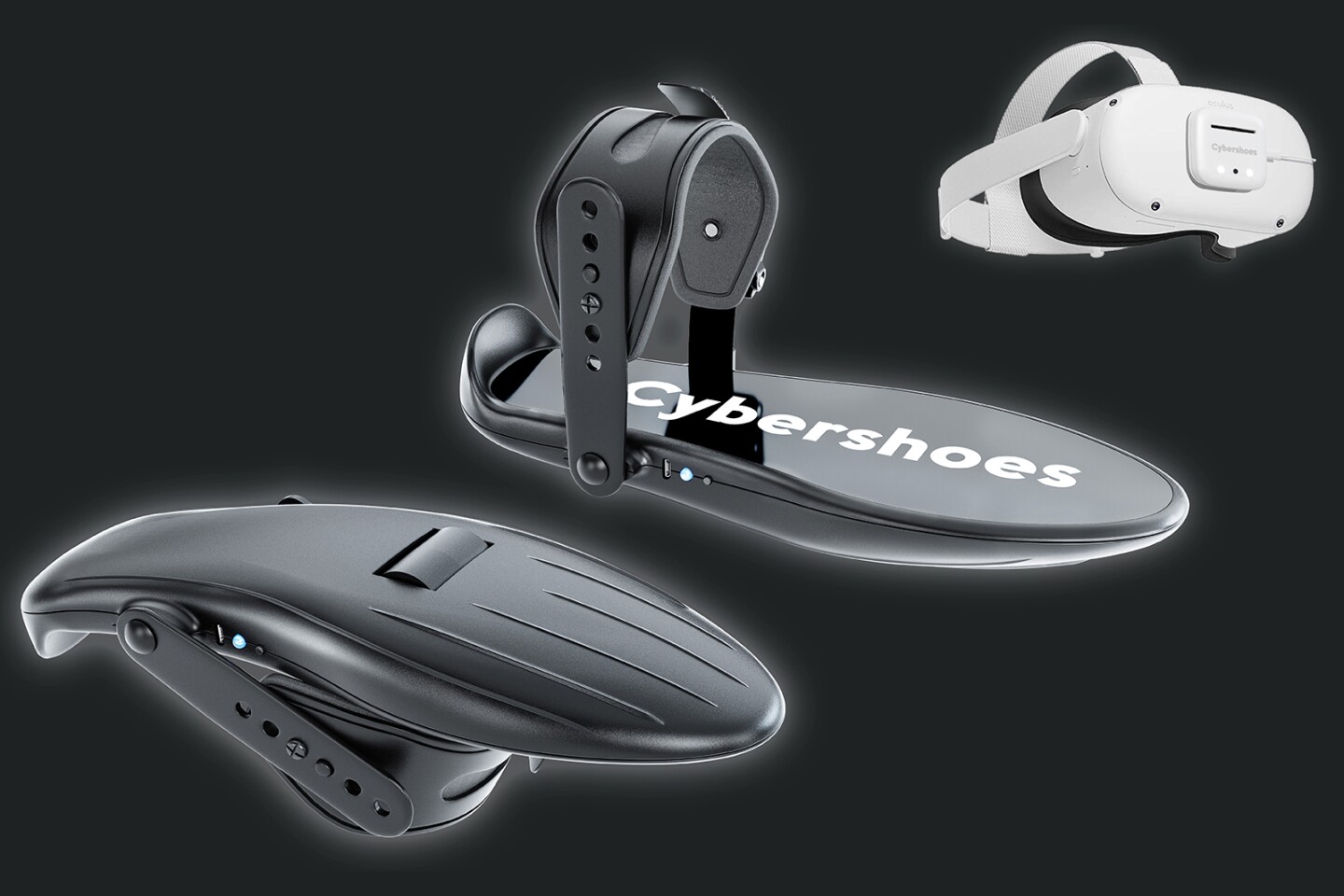One of the issues with virtual reality gaming is that VR experiences are usually set on a scale that's bigger than your living room – so you end up having to stay in a very small part of the world or "teleport" from place to place. The latest attempt to fix the issue comes in the form of the Cybershoes.
The footwear is fitted with sensors and rollers to track the movement of your legs and feet. But you can't just put them on and run around, the Cybershoes need to be used in combination with a swiveling stool, so you've effectively got a stripped-down treadmill that lets you move while staying in one place.
"As legs move, the chair is forgotten in no time," promise the developers on Kickstarter. "What counts is that you're active and this – sort of – tricks the brain. With Cybershoes you extend the borders of your living room."
The accessories actually fit over the shoes you're wearing, communicating with a VR headset via a Bluetooth adapter, and featuring their own inside-out tracking (so they know where they are in 3D space without any external sensors). The makers are promising 8 hours of battery life between charges.
These new, wireless Cybershoes are actually the second-generation of the product: the original wired shoes worked with SteamVR on PC, but the updated version is going to support the standalone Oculus Quest and Oculus Quest 2 headsets.

As several thousand of the first set of Cybershoes have already been shipped, that should allay some of the usual fears about crowdfunding – as always, there's no guarantee that putting money down on Kickstarter or Indiegogo will get you a finished product. In this case, the Cybershoes team has already reached its crowdfunding goal, and says funds will be used to support game integration and development.
Right now the Cybershoes work with any VR game that has in-game locomotion as an option, and integration with more games is on the way – including well-known zombie shooter Arizona Sunshine. As with a lot of VR accessories, developer support is going to be crucial in making the Cybershoes a success.
From the demos we've seen, and the first generation of the footwear, it looks as though the Cybershoes could be a success – at least for some people in some games. Plenty of other companies are also working to try and make movement in virtual reality a more natural experience.
Right now you can put down US$279 for a pair of second-gen Cybershoes on Kickstarter, which will get you the shoes, the VR receiver, and the Cyberchair stool if all goes to plan. Shipping is estimated in April 2021, at which point the shoes will be available for a higher retail price of $399.
Source: Cybershoes







